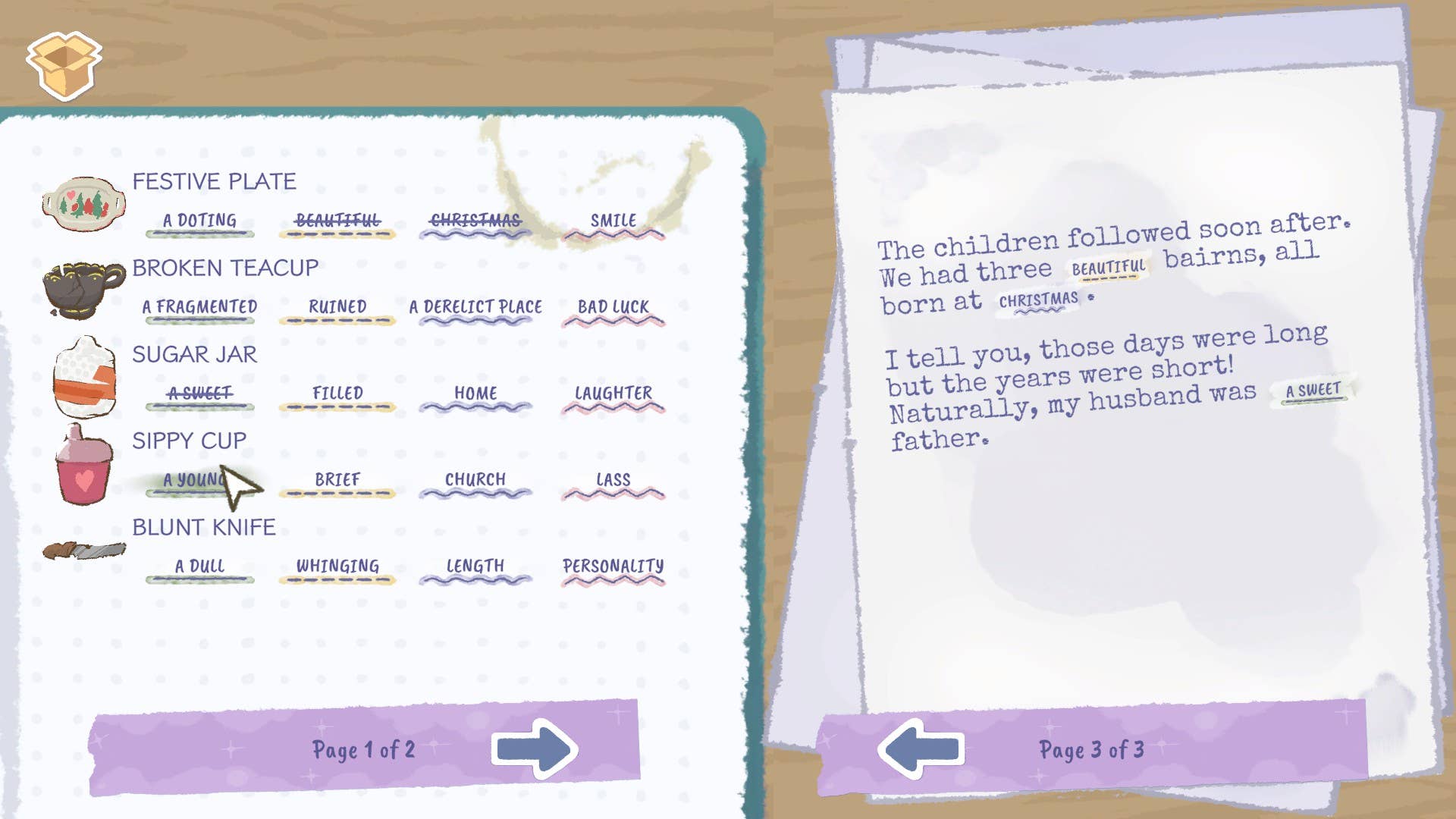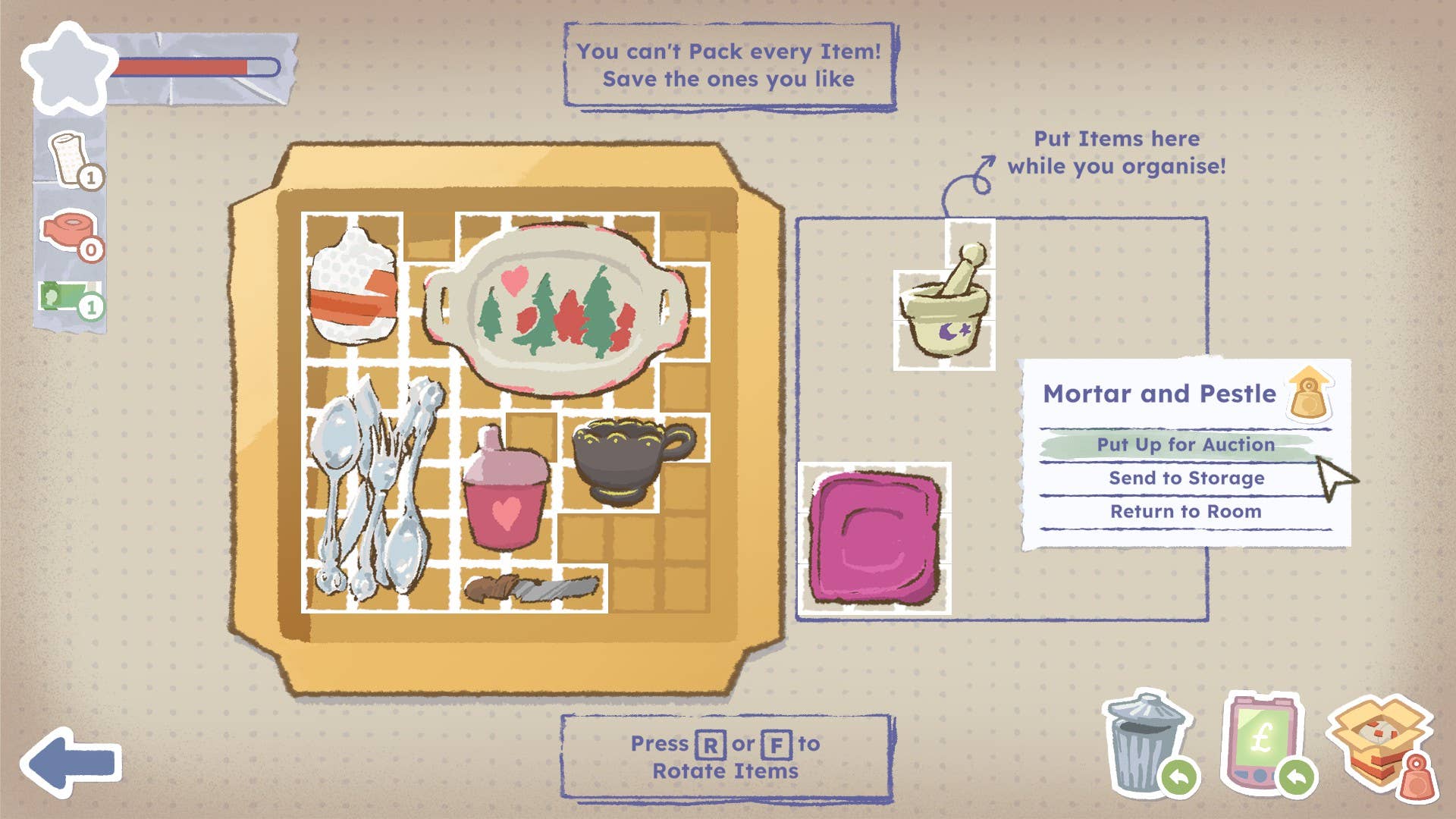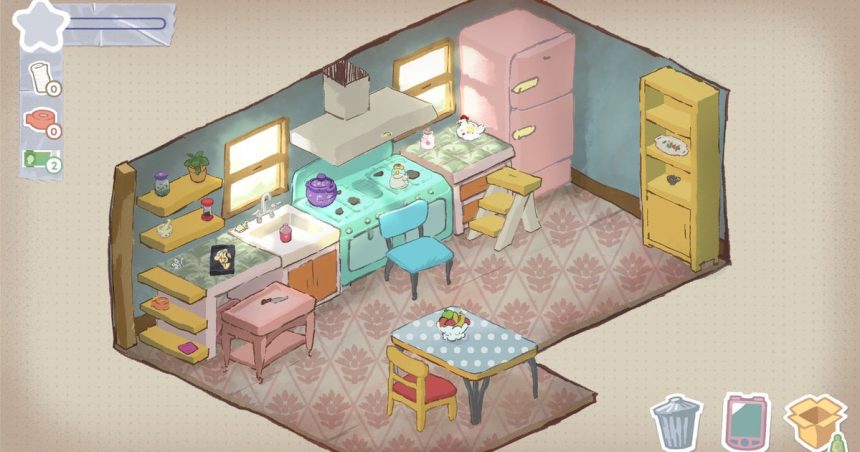I should say in advance that I believe in a famous life: Tabitha is often meaningful. It joins a bulging collection of cozy/healthy games that happen to die, but it is more grounded than most, spectacular views and spectacular philosophers, simply cleaning up the home of their deceased loved ones while patching her unfinished memoirs. It’s completely serious and troublesome, but I’ve been feeling anxious about leaving the Gamescom demo last month. In particular, it’s about how aspects of the puzzle are undermined, rather than allowing for posthumous storytelling.
And that’s not that I didn’t get the setup. Half of the famous life is unfolded in reverse unpacking. You need to get an isometric view of one of Tabitha’s rooms and find left-handed items that you can rifle through every corner and save, sell and throw away. Only a carboard box can hold as many mementos as permitted. Larger items can use more inventory style grids.
I’m familiar with this chuck or wise dilemma, as navigating has been a significant part of the past year. My dad passed away after my mother in 2020, so my siblings leave my siblings and audit and sort all the trinkets last in our family homes up to now. Unless some Debased Souls have made a benchmark simulator for steam decks, it may be one game where there is one game that speaks most closely to my recent living experience. There are shortages of packaging tape, etc.
This particular part, the game works pretty well. In addition to the simple (and, and again open) tactile pleasure of dragging a chair aside to reveal valuable discoveries, the limitations of how long you can maintain must effectively replicate the appeal of judgment on what is worth taking to you. Like the sparkle of guilt that comes with dropping a handful of old possessions into a bin bag, if the owners were still here, they were “mitigated only by the relative certainty that they were saying something for the effect of what is there.” you Do you want to do 12 Ronan Keating CDs? ”
However, we go into the other half – writing a memoir – and that air of empathy begins to thicken with the scent of traditional games. To fill in the blanks in Tabitha’s patchy book, you are given a narrow selection of words based on items stored from the previous room. Some of them are related to common nouns and adjectives, specific times, places, or feelings that may work in multiple gaps.
The idea is that memories of Tabitha’s rescued from physical space are in the form written in the story of her life. And you are encouraged to encourage people to bring about the fragile things that are mostly sad, even bitter words that quickly bring about the mood of memoirs. It seems difficult, if not impossible, to maintain enough objects to actively fill every page, because choosing different items can dramatically change Tabitha’s story when she chooses a variety of items, from her to her relationship with her child.

That suggests that there is actually no “right” and “wrong” combination. However, it is absolutely possible, as it is absolutely possible to turn a memoir into a sudden, memoir-like series of depressing non-duty, or even worse, a word menu that turns it completely nonsense. Only a few rooms, one snapped spoon means that Tabitha’s previously beloved husband must be placed over the character to ensure that all the gaps are met. After the room I put multiple memorabilia in the box, but there were very few nouns to do the work. Certainly, no one has given birth in a church since 1747.
In addition to the fact that being tied to the railroad to an odd reaction undermines the idea that you are completing the story of your precious relatives, it collides with aspects of the house clearance that otherwise was well-performed. Instead of storing bits and pieces for sentiment, the memoir writing system encourages you to essentially bag and shop with the “best” words. At the same time, I’m disappointed You pick up fragile items that could have been meaningful memorabilia, break the transport and pick up because you can poison the well with harsh adverbs.
There is no tale of Tabitha’s canon that needs to be told as accurately as possible, but the conveyed concept of freeform also does not shine. In my demo, the progression was objectively incorrect whenever I requested scribbles with text I didn’t want. And not only did I want to maintain a happy atmosphere, but I didn’t feel right to put the words she wasn’t confident in saying herself in Tabitha’s mouth.
It’s ironic: I can be very closely related and its structure makes me stronger and stronger to do things I never would. When I wrote my father’s pursuit – allowed, AutomaticBiographical work – I have been careful to make it a speculation-free fact festival, and I am afraid that my relative shortage of anthropology will make it intense with errors, so I can’t even continue working on her main entertainment for years on my mother’s genealogy project.

We have a prominent observation that bereavement often involves responsibility. Many of them are mundane administrative and I am grateful to have captured (first) the dissonance of pain and pragmatism inherent in the process of calming other people’s problems. Again, I don’t think I’m aiming to dilute and dilute that feeling, especially after talking to some of GamesCom’s Lab42 developers and seeing that the entire concept was inspired by the experience of family loss.
Therefore, subsequent stages of the game may be able to express and examine sadness without baffling many of the good/bad choices. In the end I cleaned up only three rooms of what looked like an enviable and spacious home. But for me, another responsibility we have to the dead is to tell their stories as we know them, resisting the temptation to fill the gap with guesswork. If the only option is to till the production first, I don’t want to do that at all.
Check out the Gamescom 2025 Event Hub for all PC Games Announcements and Cologn Preview Coverage.
(TagStoTranslate) Famous Lifespan: Tabitha (T)Gamescom 2025 (T)Indie (T)Lab42 (T)PC (T)Preview (T)Puzzle (T)Incognito Mode








